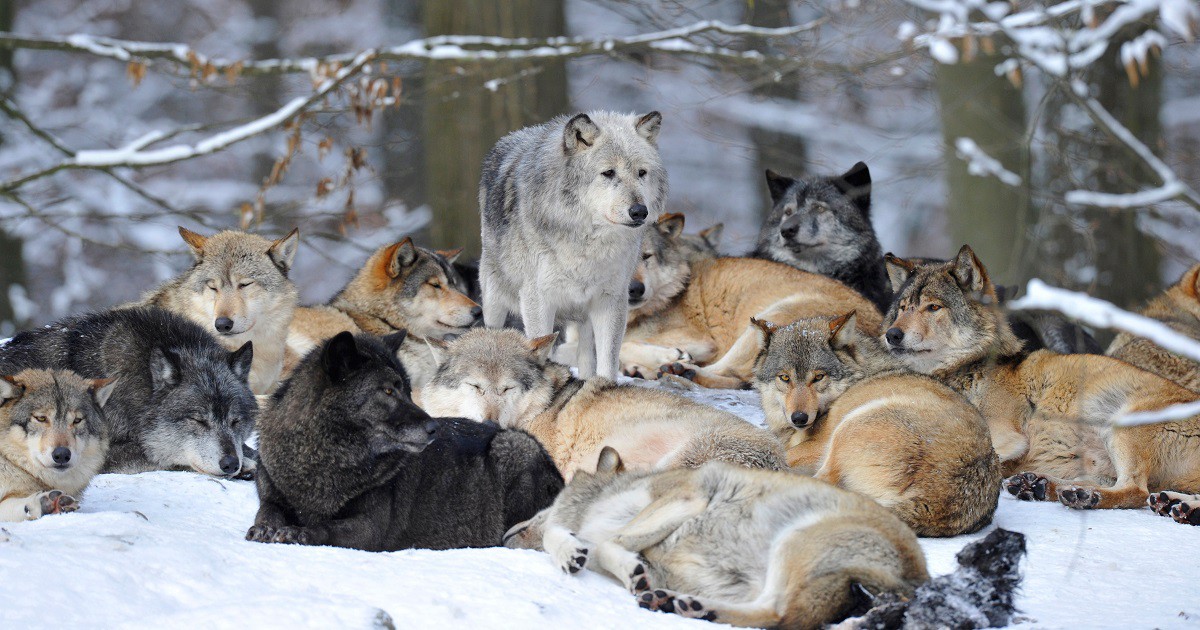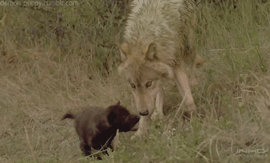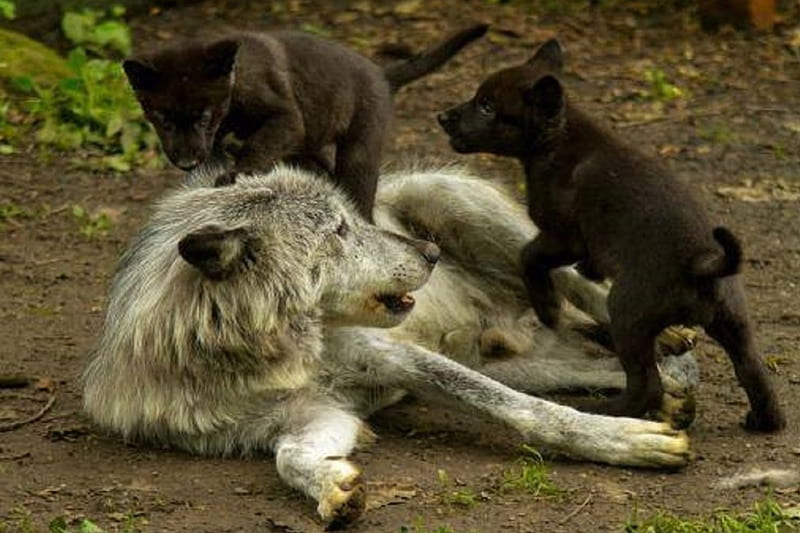Wolf Pack
Everything that you need to know about the Wolf Pack.
What is a wolf pack?
A wolf pack is a family – Mom, Dad and the kids. Often pups from the previous year’s litter that have lived through the first winter remain with the parents before they leave to find mates and form families of their own. Some siblings may remain with the pack for two or more years. The adult parents are usually not related.

How many wolves are in a pack?
It varies greatly. Sometimes there are just two, a male and a female who have formed a bonded pair. Usually the pack consists of the breeding male and female and their offspring of the present year. Often, pups from the previous year’s litter will not disperse but will stay with the natal pack for 2 or 3 years. The size of a wolf pack varies greatly and is regulated by the amount of food available, pup survival, dispersal and mortality due to disease, injury and human causes.
Wouldn’t it be best for wolves to live in large packs so they could kill more prey?
Not necessarily. The more wolves, the more food needed. Also evidence indicates that most of the killing is done by the breeding pair with the younger wolves participating as part of their own learning process.
Does only the mother wolf take care of the pups?
No. For the first two weeks, the mother remains in the den with the pups to keep them warm since they can’t regulate their body temperatures. It is the job of the breeding male and the other pack members to bring the mother wolf food. A wolf pack is not matriarchal the way a lion pride is, for example. All members of the pack care for the growing pups, babysitting while the breeding female hunts (once the pups are old enough for her to leave the den and return for nursing bouts) and regurgitating food to them as they are weaned and begin to eat solid food.

Does the breeding male ever kill the pups?
No. The father wolf and the other members of the wolf family take care of the mother when she is confined to the den nursing the pups. They bring her food and stay by the den when she needs to venture out to drink water. If there are no wolves in the pack other than the breeding pair, the mother wolf would have a tough time raising the pups without the help of her mate. When the pups are old enough to venture out of the den, the father and older siblings help raise the pups. They play with them and bring them food and bones and pieces of hide to play with. Play is important because it increases strength and reinforces survival behavior.
Does the father wolf go into the den?
No, usually not. Some biologists claim to have observed this. Others have not.

How long do the pups stay with the pack?
Most stay at least a year. They need to mature, and yearlings are still learning from their parents how to catch and kill prey. Some young wolves disperse (leave home) between their first and second years. Others stay well into their second year before leaving. Occasionally a wolf will stay with the natal pack for 3 or 4 years or even longer. Sometimes wolves leave the pack, travel long distances for even months and then return to their family.
Why do wolves leave the pack?
Why do human children leave home? To be independent, to find a mate and raise a family of their own!
Do the kids ever leave and then come back to visit?
Yes, they do. An “outsider” who is accepted into a pack may actually be a returning offspring. If the wolf is wearing a functioning radio collar, the family tie can be confirmed by researchers monitoring the pack.
Do wolves allow outsiders to join the pack?
Sometimes they do. Sometimes a new breeder will join the pack if the mother or father wolf dies or is killed.
Do wolves ever kill members of their own pack?
Yes, sometimes they do, although this is not common since wolf packs are families of directly related individuals. Sometimes wolves will drive a member of their own pack out and force it to disperse, especially if food is scarce. Generally, however, a wolf pack is a highly cooperative family with a hierarchy that is constantly reinforced. The parents, the breeding pair, are in charge, and the offspring of various ages support the family by hunting and caring for the pups of the year.



